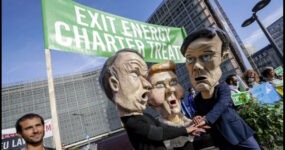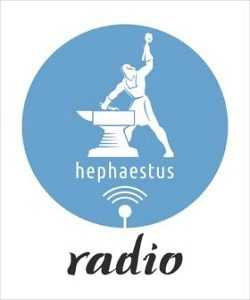Ongoing talks to reform the EU’s flagship climate policy tool, the emissions trading scheme (EU ETS), appear stuck as Parliament accuses EU member states of refusing to give ground.
The EU ETS, which caps the emissions of around 10,000 industrial sites and allows companies to trade surplus CO2 credits, is the EU’s flagship climate policy tool.
The scheme, which covers around 40% of the EU’s carbon emissions, is currently being tightened to align with the bloc’s target of reducing greenhouse gases by 55% before the end of the decade.
Following a reform proposal by the European Commission in July 2021, EU countries and Parliament are in the midst of three-way negotiations called trialogues.
But those talks are currently stuck.
“I don’t have many good news,” said Peter Liese, the chief Parliament negotiator.
“We had the third trialogue yesterday, and it was not really successful,” the German conservative lawmaker told journalists on Friday (11 November) after talks held the day before.
Michael Bloss, a Green EU lawmaker who sits on the Parliament’s negotiating team, said MEPs have “shown great willingness to compromise” with EU member states in order “to find an agreement quickly.”
But the Council of the EU, which represents the bloc’s 27 national governments, has “shown little will to move towards the Parliament and thus continue to block the process,” he explained.
As world nations gather in Egypt for the COP27 climate talks, this lack of progress is “embarrassing”, Bloss added.
As part of the talks, Parliament defended plans to provide 10% of revenues from the bloc’s carbon market to support developing nations.
However, the Council resisted and got its way. “There is no [10%] figure directly in that compromise,” Liese admitted, saying all that Parliament could obtain was a reference the recitals which he described as “quite strong”.
Recitals are part of the non-binding preamble to EU laws. According to Bloss, the agreed text is “very weak.”
Among the sticking points, EU countries resisted moves to extend the ETS to waste burning, a high carbon-emitting activity which also causes broader air pollution issues. Instead of an impact assessment proposed by Parliament, EU countries called for voluntary opt-ins.
“That was one of the moments when I was quite frustrated in the trialogue yesterday with the Council and the Commission,” Liese said.
Parliament also caved in on fossil fuel financing, allowing carbon market revenues to fund new natural gas projects through the ETS Modernisation Fund until the end of 2024. In exchange, electricity producers will likely no longer receive free emission certificates going forward.
Market provisions
The only significant progress was made on market-specific provisions, with increased market surveillance and a more effective price stabilisation mechanism both agreed in principle.
The EU’s carbon price will be stabilised using a pool of emissions certificates, the market stability reserve (MSR). In previous rounds of talks, the MSR was drafted in such a way that it would “never work,” Liese explained.
Under the agreement reached this week, ”if the average [CO2] price over six months is 2.4 times the average price over the previous two years, 75 million allowances are automatically released from the MSR into the market,” Bloss explained.
The European Parliament also ended up dropping its demand to limit trading in carbon certificates. Instead, market surveillance and transparency rules will be strengthened.
MEPs disappointed by EU climate chief
Parliament negotiators also vented their frustration with the EU’s climate chief, Frans Timmermans, for failing to provide support during the talks.
“The Greens have criticised Mr Timmermans in past weeks, and I think they are right,” said Liese, who is from the centre-right European people’s Party (EPP), the largest political group in Parliament.
“My feeling is that Frans Timmermans, unfortunately, has too much on his plate,” the Parliament chief negotiator added.
On Friday, Timmermans flew off to Egypt to join COP27.
“He couldn’t really put his political weight in the discussion yesterday. Because he was not prepared. And that was kind of a disappointment,” Liese said.
The next trialogue is scheduled for 22 November, which should be followed up by a “jumbo trialogue,” aimed at wrapping up the negotiations, Bloss said.
But Liese, who is usually optimistic, warned that it would be a challenge to finish the negotiations before the end of the year, as initially envisaged.
“I want to make this compromise. But since yesterday, I’m less optimistic,” the German MEP told journalists, saying he was ready to hold off a deal if Council expects Parliament “to just give in.”
If an agreement cannot be reached this year, EU countries will hand over the negotiating baton to Sweden, which takes over the Council’s six-month rotating Presidency from Czechia on 1 January.
Source: Euractiv.com















Leave a comment